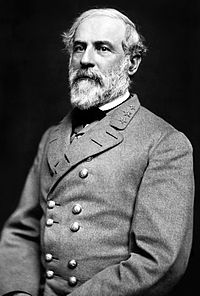
 In honour of the 70th Anniversary of the D-Day Landings, the Juno Beach Centre Association is paying tribute to the Canadians who lost their lives on June 6, 1944. Canada’s D-Day Tribute Campaign will see a field of 359 tribute markers – one for every Canadian killed in action on D-Day – installed on the grounds of the Juno Beach Centre in Normandy, France. The amassed tributes will create a moving display, emphasizing the gravity of Canada’s sacrifice.
In honour of the 70th Anniversary of the D-Day Landings, the Juno Beach Centre Association is paying tribute to the Canadians who lost their lives on June 6, 1944. Canada’s D-Day Tribute Campaign will see a field of 359 tribute markers – one for every Canadian killed in action on D-Day – installed on the grounds of the Juno Beach Centre in Normandy, France. The amassed tributes will create a moving display, emphasizing the gravity of Canada’s sacrifice.
It is our goal to reach as many Canadians as possible with this campaign, and we hope that your organization will help us in this task. Whether it’s through internal memo, e-newsletter, or old-fashioned word-of-mouth, we hope that you will tell your network and members about Canada’s D-Day Tribute Campaign, and perhaps coordinate sponsorship of a tribute marker.
This campaign gives Canadians the opportunity to recognize their nation’s contributions and engage in an Act of Remembrance. The 359 Canadians who fell on D-Day and the thousands more who were killed throughout the Battle of Normandy were from communities across Canada. They went to the school down your street, sat in your church every Sunday, and worked at your businesses. Some of the men were really only boys as young as 18; they stormed the beach fresh out of high school and minor sports. The D-Day Tributes will tell the stories of these soldiers, and can be sponsored for a minimum of $500. We want to tell the unique story of each of the 359 Canadians who made the ultimate sacrifice.
The Juno Beach Centre’s mandate is to remember and commemorate the sacrifices made by all Canadians during the Second World War and to educate future generations about the role Canada played in preserving the freedoms we are privileged to enjoy today. This campaign aims to raise awareness and to honour those who lost their lives. The funds raised will ensure the placement of the tributes in time for the 70th as well as help to pave the way for future commemoration and educational programming at the Centre.
I would love the chance to discuss Canada’s D-Day Tribute campaign with e-Veritas readers further. I’m happy to provide more information about the campaign and how to be involved at any time. Please feel free to contact me at our Canadian office by phone, 1-877-828-JUNO (5866), or email me at jsguigna@junobeach.org. We appreciate your support and look forward to any help your organization can give us in reaching all of Canada with this initiative.
Jen Sguigna Special Projects Coordinator Juno Beach Centre Association
***
Bill,
Here is a quote from Robert E. Lee I found today that might be good for e-Veritas. As you may perhaps be aware, in the years prior to the Civil War, Lee served as Superintendent of West Point from 1852 to 1855. During this time, his eldest son, George Washington Custis Lee, graduated first in his class from West Point in 1854.
Hope you can use this in some way. Reading about this, it brings to mind men like Danny McLeod, Syd Frost, Paul Manson, Paul Hession, and many others like them
Mike Kennedy
Robert E. Lee
Lee’s definition speaks only to conduct.
 “The forbearing use of power does not only form a touchstone, but the manner in which an individual enjoys certain advantages over others is a test of a true gentleman.
“The forbearing use of power does not only form a touchstone, but the manner in which an individual enjoys certain advantages over others is a test of a true gentleman.
The power which the strong have over the weak, the employer over the employed, the educated over the unlettered, the experienced over the confiding, even the clever over the silly — the forbearing or inoffensive use of all this power or authority, or a total abstinence from it when the case admits it, will show the gentleman in a plain light.
The gentleman does not needlessly and unnecessarily remind an offender of a wrong he may have committed against him. He can not only forgive, he can forget; and he strives for that nobleness of self and mildness of character which impart sufficient strength to let the past be but the past.
A true man of honor feels humbled himself when he cannot help humbling others.”
Lee’s conception is one of the better known expositions in favor of the Southern culture of honor.

